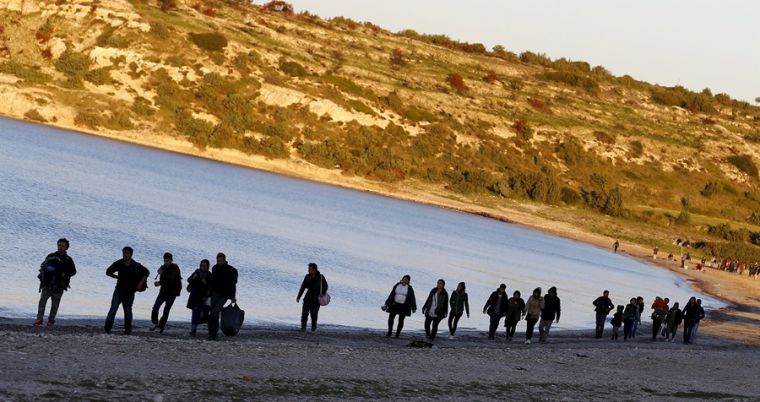Greece set to become country-wide refugee camp, Catholic relief agency warns
Greece is effectively being converted into a refugee camp by tighter border restrictions in Europe, the Catholic Church's relief and development agency has said.

"As European borders go up, refugees and migrants are being left stranded and desperate," Caritas said.
More than 80 per cent of the 1.01 million migrants and refugees that entered Europe in 2015 did so via Greece, almost all arriving by sea. A further 131,847 arrived before 7 March this year, according to the International Organisation for Migration.
As countries further inland tighten border restrictions, Greece is effectively being converted "into a refugee camp indefinitely."
In Idomeni, Greece, refugees are sleeping in fields.
"It's a very tense atmosphere. It's cold, people are trying to find anything to make a fire and keep warm. There's a lack of tents and warm food. Many families with children have been waiting for days at the border," said Evelyn Karastamati, emergency coordinator for Caritas in Greece.
The situation was catalysed by Austria stating it would only accept a handful of asylum seekers and refugees each day, sparking a "domino effect of borders being closed to the vast majority of those people fleeing war and poverty from the Middle East, Asia and Africa," according to the agency.
On March 9, Slovenia and Croatia refused to allow refugees through their territory. Serbia and Macedonia have said they will do the same.
"We don't have enough food. We have no other clothes. We can't look after our hygiene," J, 26, who has been stuck on the Greece-Macedonian border for ten days, told Caritas.
"There is no safe way to continue our journey. The border is almost closed for us fleeing war," he added. "I feel hopeless. I just want to live normally again."
As the border controls tighten, some refugees are being forced to turn around and return to previous transit points.
Mujdah, 15, with her mother and brother had travlled from Kabul. They are now staying at a camp in Presevo, having been forced to retreat from Serbia's border with Croatia.
"Since our father used to work for the Afghanistan army we were an easy target. Our older brother was kidnapped by fundamentalist militants," Mujdah told Caritas.
"The situation became unbearable, so we decided to leave Afghanistan on foot and have travelled a month and a half to get to Greece."
Caritas is urging Europeans and their governments to show greater solidarity with Greece and refugees.
"The failure of Member States to apply a comprehensive and humane approach to this situation is putting the EU's credibility at stake. Greece, its people and all the migrants and refugees on its soil are paying a very high price," said Caritas Europa.











